Our Blog

March 13, 2023
Recently a friend referred to our childcare center as an intentional community model. Unfamiliar with the term, I soon discovered intentional communities are planned communities defined by teamwork encompassing a group of people sharing a c ommon vision or ideal. Here, Magda Gerber’s parting words in Your Self-Confident Baby best describes the shared value system of MMP School: A respectful beginning is an investment in the future of the relationship between your child and you, your child and others, and in your child’s exploration of the world. A RIE beginning helps to develop a competent, confident child.
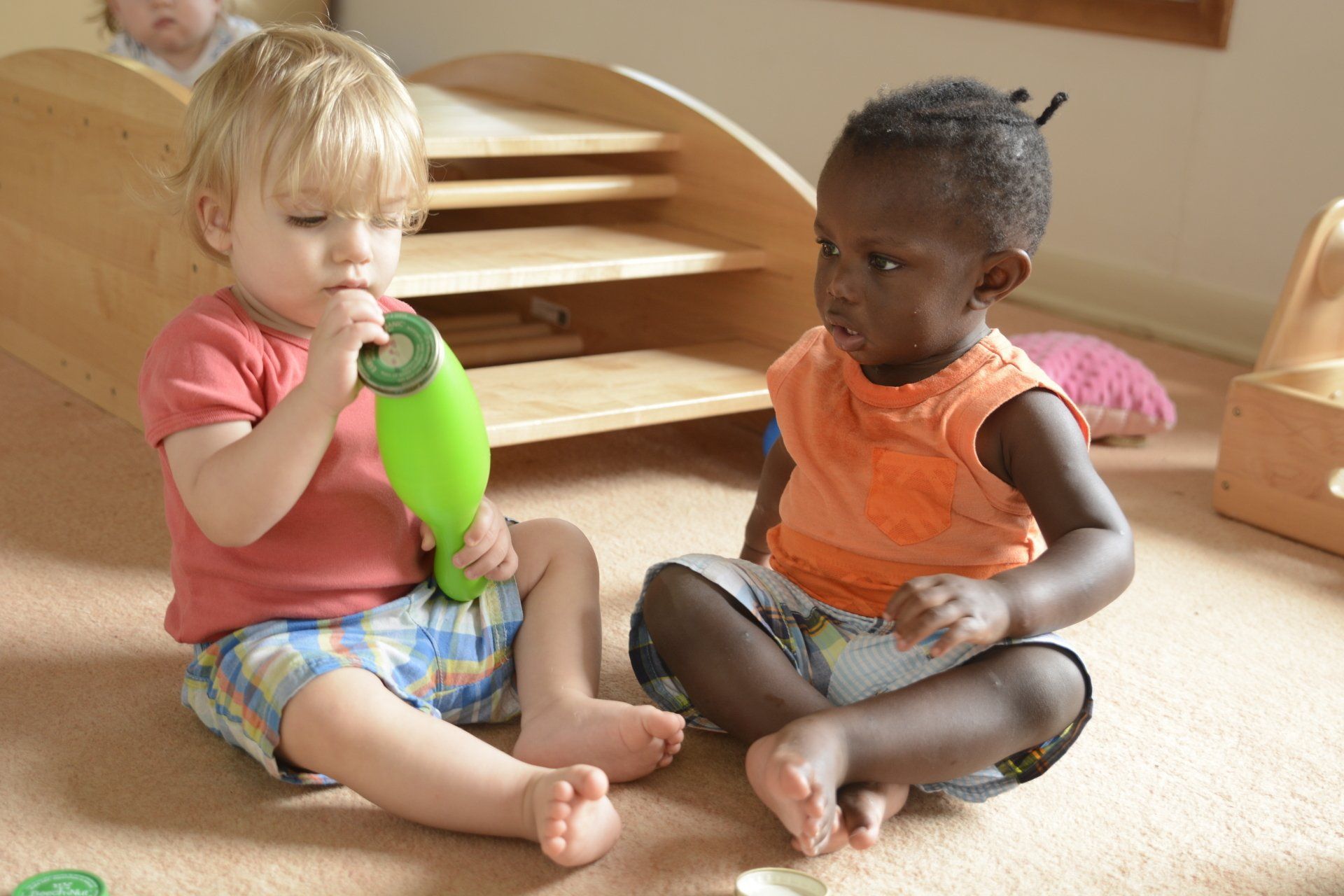
October 25, 2022
When it comes to the research on peer learning, we don’t often think of infants. However, groups of young children together in a trusting environment demonstrate the earliest stages of this concept. Oftentimes, group providers miss these subtle learning interactions as we balance individual child physical care needs, governing regulatory obligations and parental requests and concerns. How can we trust that the child is learning without adult intervention? In peer learning, students will engage themselves intellectually , emotionally and socially in “ constructive conversation ” and learn by talking and questioning each other’s views and reaching consensus or dissent (Boud, 2001). Here we observe a child struggling to place the lid on the bottom of a bowling pin. He’s noticed the similar circles of the two objects, but he’s become frustrated in trying to put the two together.
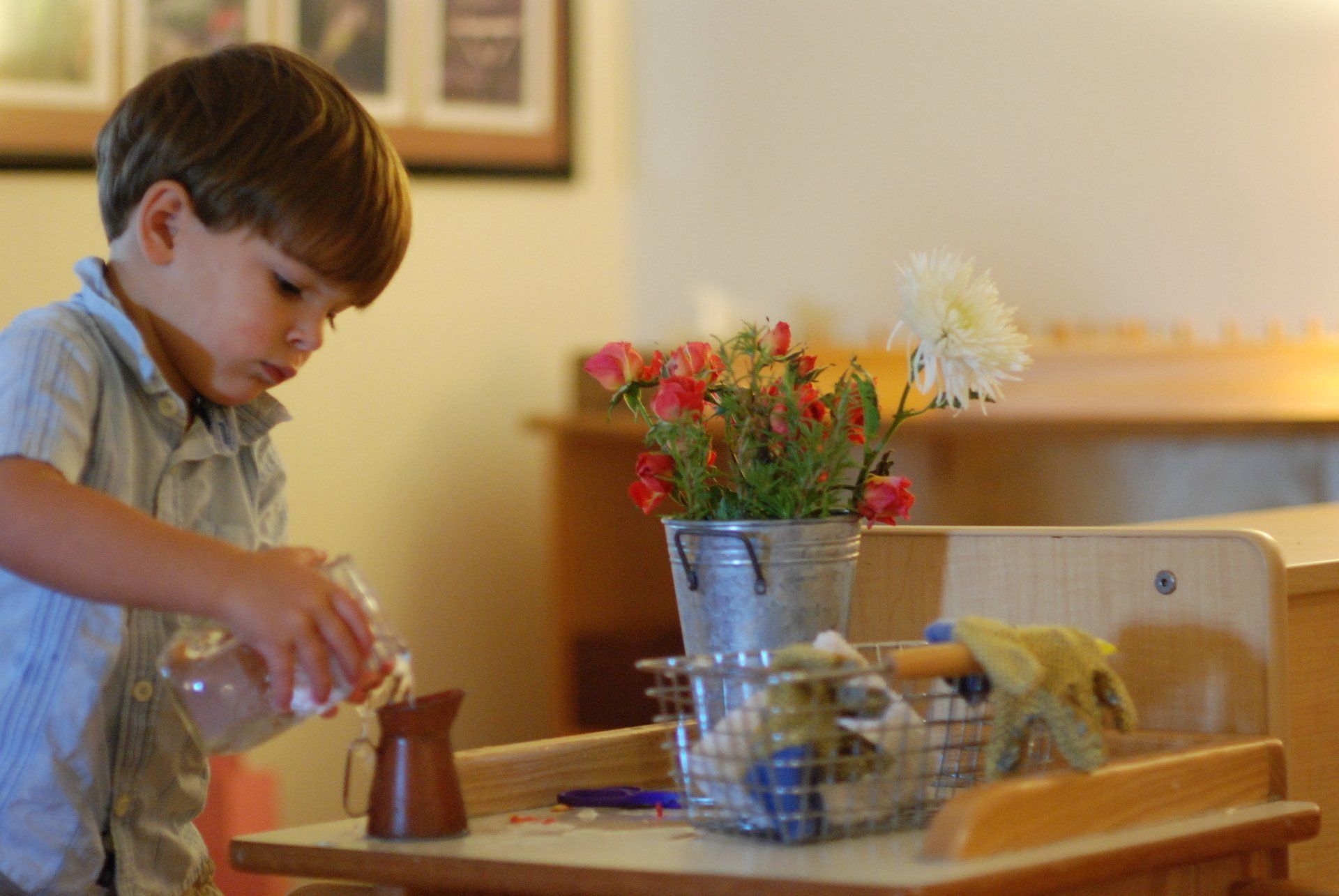
By Nido Marketing
•
September 26, 2022
Montessori Practical Life 101 invariably includes the outline for FLOWER ARRANGING. This pivotal work links all cornerstones of the Montessori environment from toddlerhood through elementary- first as a sensorial experience and, later as an in-depth research into the functions and parts of flowers themselves. The appeal of the arranging and the giving of flowers is universal- for centuries flowers have marked important milestones in our daily lives; expressed feelings of love, gratitude or sadness; or been admired as an appreciation for natural beauty. In the classroom, a vaseful of fragrant flowers provided an open invitation from which Dr. Maria Montessori took full advantage: The process of flower arranging is predictably sequenced with precision and care- as are all of the practical life activities- to best support the development of coordination, concentration, order and independence. The child puts on an apron, selects a vase, fills it with water and chooses the perfect flower to cut and place inside the vase. He then carries the vase and a small doily to a table in the room and lays down the vase carefully on the top corner of the table. There is often another child at work sitting there at the table who looks up. The two make eye contact and exchange a moment of silence.
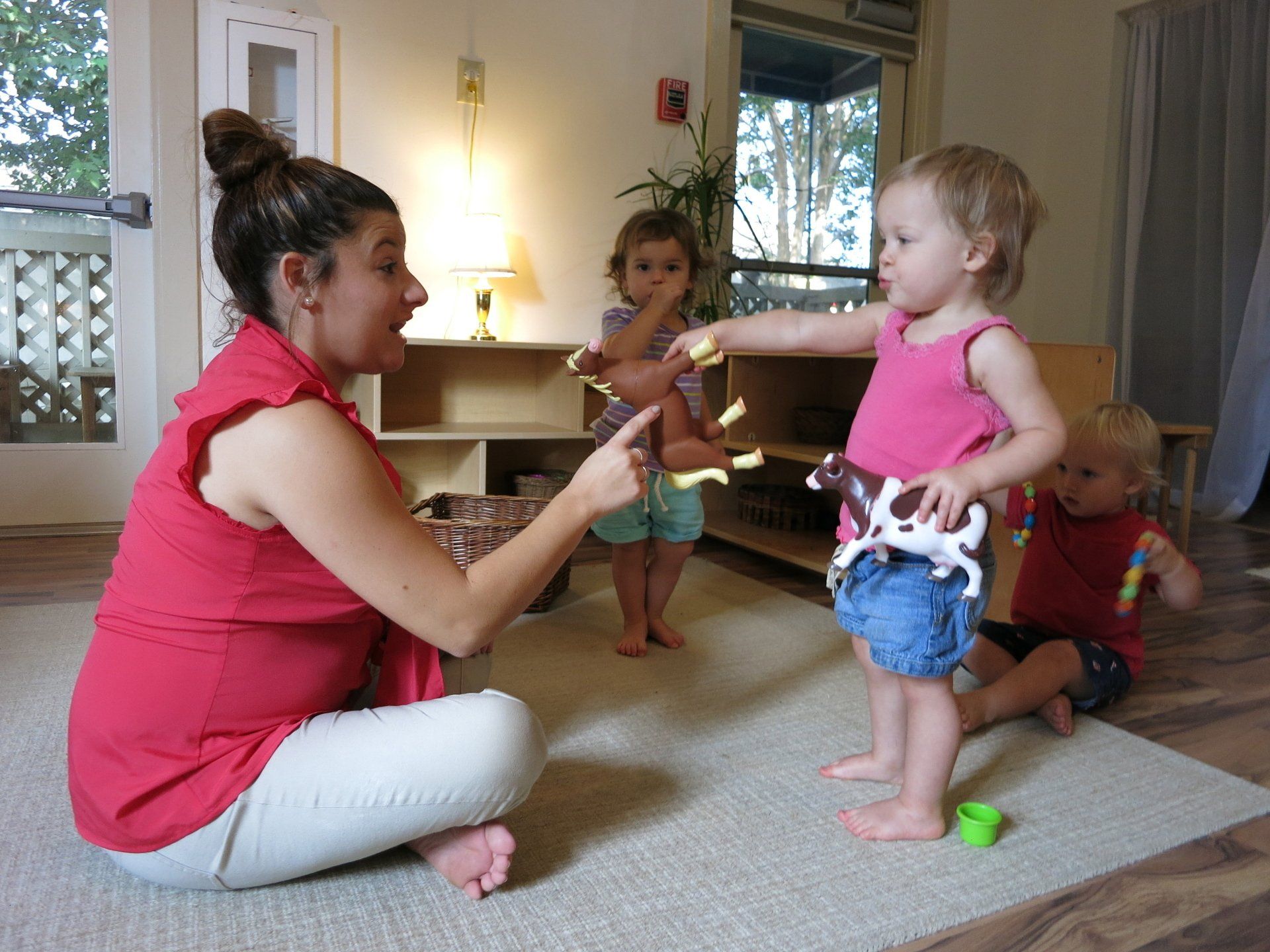
September 21, 2022
I was a daycare baby. In the ’70s, still relatively few families involved both parents working and if they did, extended family often took care of the little ones. My parents, however, were members of a growing group of transplants without extended family who relied on two incomes to make finances work. At the time, daycare options were limited. High quality care was virtually non-existent. It wasn’t until I was 8 years old that my mom finally had enough. A family therapist by profession, she couldn’t believe the challenges working families faced in finding a center with regard for CARING for young children. Although her own children had aged out of a pre-school need, my mom’s mental health background fairly screamed, “If you want to make a difference, start with children.”
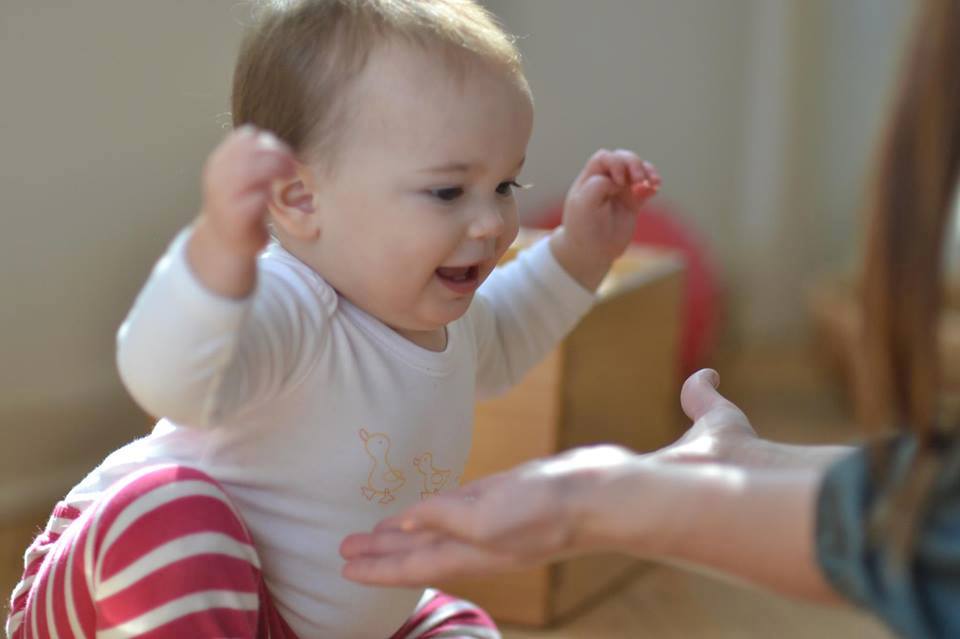
By Little Learners Lodge
•
July 15, 2022
Infants and Toddlers are learning how objects are used together which is why they love filling and dumping so much. During this 7 minute observation what do you notice about the adult’s role in supporting the baby at play? What is the child learning? (Of note- this is the last five minutes at the childcare center before the school closes for the day. This infant has been cared for from 8am-5pm- the last adult you see in the video his his mother) Please observe first without distraction- we will be watching again.
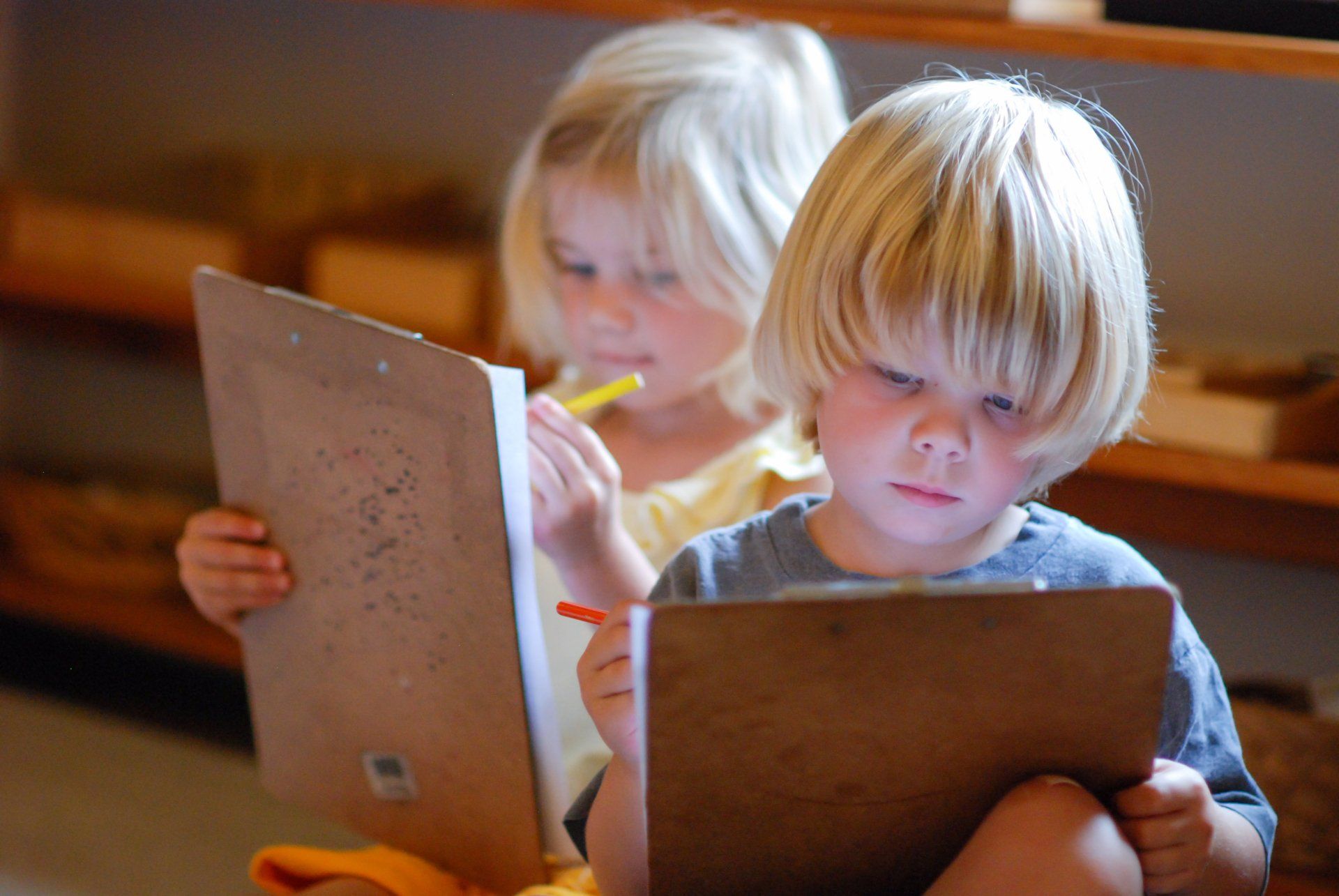
By Little Learners Lodge
•
July 15, 2022
Many authentic Montessori schools do not assign homework until upper elementary or middle school- and even then it is more individualized rather than rote style. This is for several reasons including: The school day is structured with longer work periods to allow for more in-depth concentration and completion of the work cycle rather than moving from subject to subject on a group schedule. Time with family and friends is greatly valued to help cultivate a balanced individual. Montessori follows the child’s timeline of readiness and interests to capitalize on sensitive periods of learning, natural enthusiasm and concentration. “An interesting piece of work that has been freely chosen, has the virtue of inducing concentration rather than fatigue and adds to children’s energies and mental capacities, and leads them to self-mastery.” -Maria Montessori But don’t think you’re off the hook yet. Most Montessori and RIE programs assume that parents ARE working with their children at home. In fact, we rely on it. Integrating home and school on a consistent basis ensures that your child reaches his full potential. A parent’s HOMEWORK assignment is to prepare the home environment keeping in mind your child’s developing needs. Once prepared, you can trust your child to navigate through seeking those areas which speak to her inner need. For it to work, you will need to turn off the television AND the computer. Here are some starting points: Infant Free movement on the floor Access to the outside Free choice of play objects Fully present during physical care Communication of physical care routine, giving time for processing and response Opportunities for self-soothing Opportunities for struggle and problem-solving Minimal clothing for maximum safety and exploration Toddler Choose clothes from drawer Sort laundry Fold and put clothes away in drawers Get newspaper Pour drink from small pitcher Scrub veggies Stir ingredients Set table Clean up toys Feed the cat Water plants 3-4 year old Clean windows with small spray bottle Dust Prepare the bath Fill a bird feeder Put dirty clothes in washer Peel & slice cucumbers Make coffee/toast/salad Bake bread Sweep & mop Dress self including buttons, snaps, zippers, buckles Pack school bag and carry personal items Plant seeds Wash car Clean up toys 5-6 year old Tie shoes Read face clock Make breakfast for self and others Write notes (thank you, to grandma, grocery list, to do, requests, etc.) Fill soap pumps Shred junk mail Read to younger siblings Change lightbulbs Young children are capable of doing so much and naturally have the urge to interact with and imitate the world around them. It is our job to prepare an environment that calls to them and meets their developmental needs.
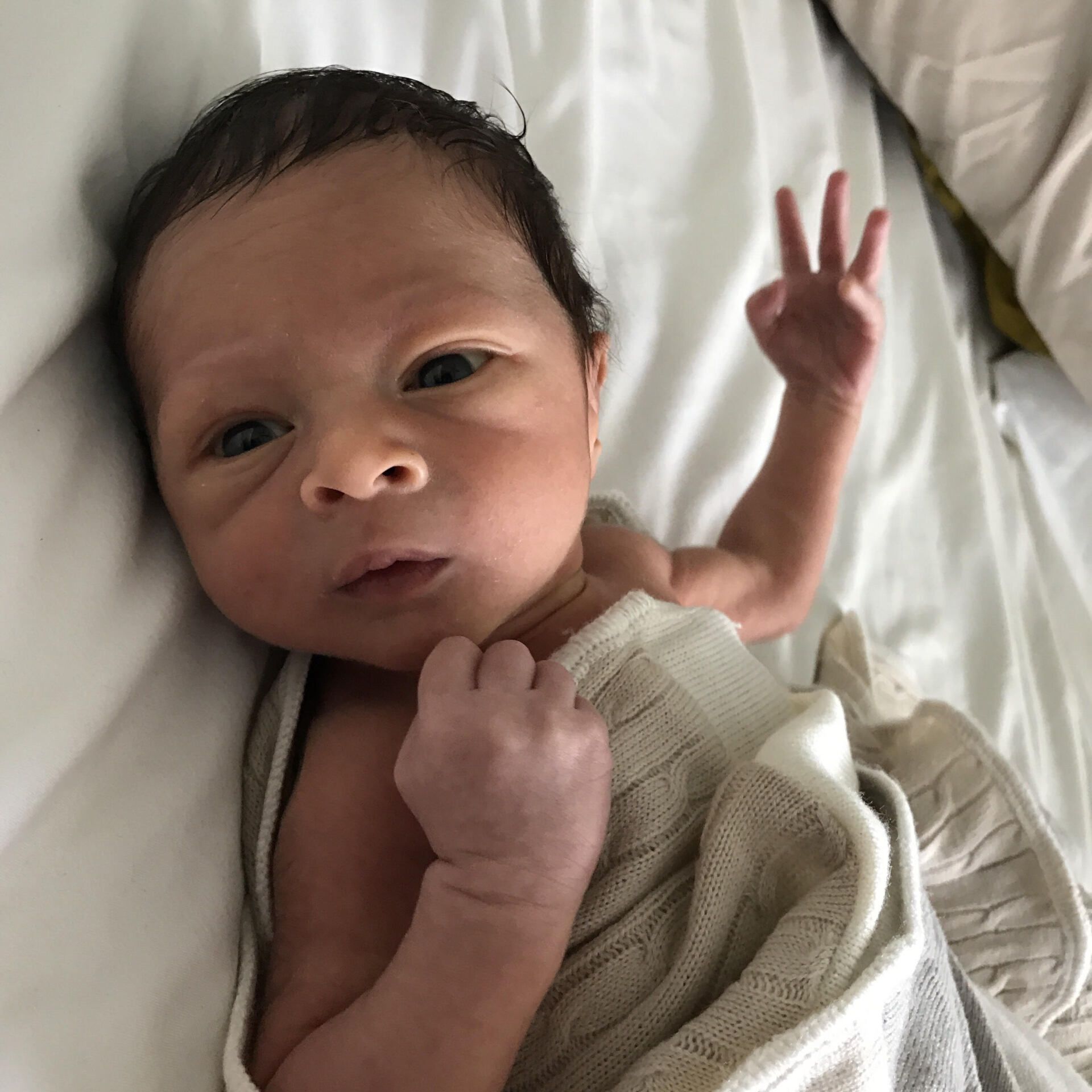
March 30, 2017
October 29 th 2016, I became a new mother. Over the past few months there have been many shifts in both my work, and perspective of the relationship between the child and the adult. Nearing the end of my pregnancy I became eager for a new opportunity to observe the child. I began looking forward to applying the things I learned through RIE ® and time spent in the classroom in my own home. I quickly noted that raising my own child would be the greatest opportunity to be authentic and to raise an authentic child who is peaceful, cooperative, and inner-directed. In the early stages of infancy, the child begins to shape his understanding of the world, and himself based on the environment and the people in it. We are role models for our children. We are helping to awaken the hearts and minds of children who will then, go out and have an influence on others. On several occasions, my son has been referred to as “just a baby”, this is something I often find surprising. Just; as in only or simply? From the perspective of both a mother and caregiver this saying strikes a sore spot for me. Not only does it come off as dismissive, but it also implies that somehow the child is considered less than. “Let us realize that the child is the worker who produces man . . . it is the child that society must take into consideration, this worker who produces humanity itself.”-Maria Montessori Our actions as parents, teachers, or members of a community are far reaching. With each word, acknowledgement, and touch we are sending messages that will help to build up, or tear down the growing sense of self within our children. Modeling behavior not only sets an example for our children, but for other adults who may not be familiar with a more respectful approach. So what can we do? We can begin by treating the child with respect. We speak respectfully of children, and infants, as people of equal value. Not as “just” a child, or “just” a baby. Regarding children with respect helps the child to learn that they are worthy of receiving respect, and sets a positive example of how to treat others. We may also model respectful behavior by acknowledging our children’s feelings. This includes their likes and dislikes. Acknowledging our children in this way sends the message that they are respected as individuals with feelings that may differ from our own.
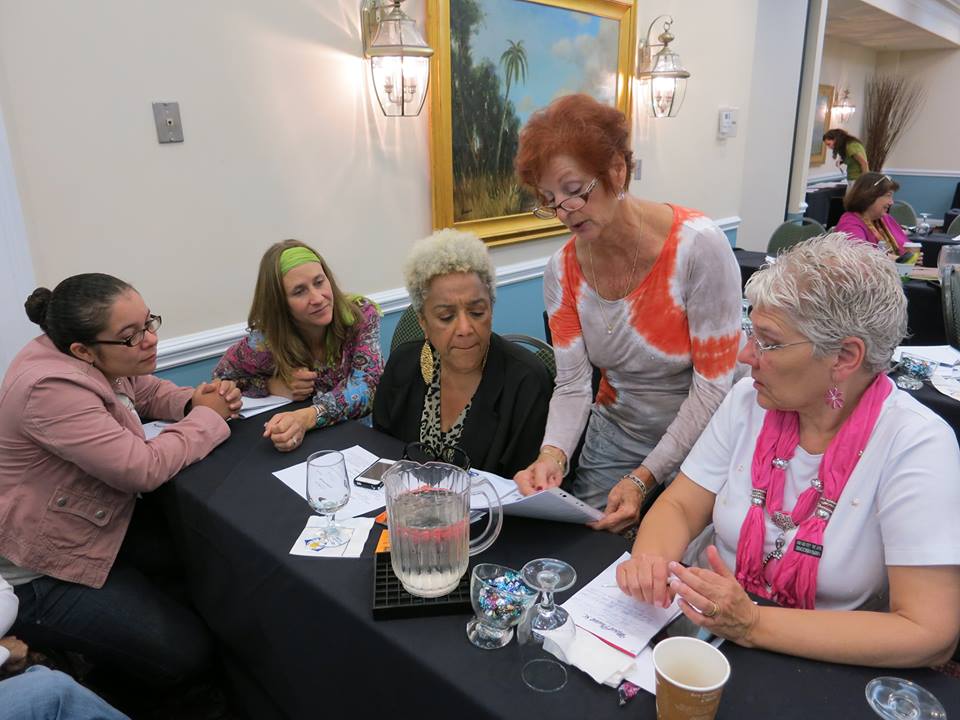
March 6, 2017
Being with Infants: A Curriculum that Works for Caregivers (video series) by Beverly Kovach MACTE accredited 0-3 Teacher Trainer, Pikler® Certified Pedagoge Instructor, and RIE® Associate and certified Foundations® Instructor About the series A 3+hour unique video training series linking early childhood providers with direct access to a comprehensive care approach. Beverly Kovach author of Being with Babies, Being with Infant and Toddlers: A Curriculum that Works for Caregivers, and numerous nationally published articles facilitates the series as caregivers demonstrate putting theories into daily best practice. Beverly developed her theories and practices as a Fellow of Magda Gerber and under mentorship with Anna Tardos. She refined these techniques to be used within the daycare she founded in 1977, Little Learners Lodge. Current caregivers of Little Learners Lodge provide the video demonstrations for this series. One of the greatest challenges in working with children in institutions is developing a congruent approach amongst adults as they balance the child’s emotional well-being within the guidelines of policies and procedures. This video series brings providers together in the discussion utilizing the expertise of today’s leading practitioners. Being with Infants: A Curriculum that Works for Caregivers (video series) combines four decades of learning and presents it into easy-to-digest chapters. Demonstrations include supporting infants in transitional positions, bottle and lap feeding, sequencing to sleep, and peaceful diapering. The series also provides caregivers and centers the necessary tools to integrate the method into their own daily routines allowing each child to thrive, develop, and learn individually.
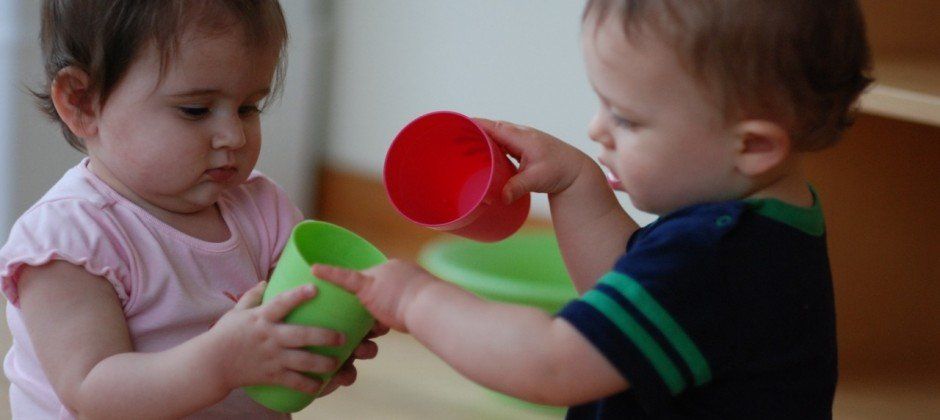
February 6, 2015
The intricacies of center practice are often left unsaid. Observers may inquire, “How do you …. ?” and we find ourselves at a loss for words. Over the decades we’ve helped guide countless children on their path towards self discovery. Individuals and group dynamics make each day unique calling on us daily to reach deeply into the seasoned early childhood professional’s bag-of-tricks. Santa Cruz Toddler Care Center On the ever popular topic of behavior management, no prescribed blueprint exists on how to approach an individual child or situation- only a general philosophical umbrella. I admire this well articulated umbrella from our colleagues on the West Coast, The Santa Cruz Toddler Care Center. You can read their behavior management policy here. Yet, just because a policy is written does not necessarily make it so. As young children learn the social and cultural expectations of their community, their adult guides must be on the same page. Having a written policy is a good place for working parents to start- provided they have read it- however, parents will need ongoing communication and resourcing to help make it stick. We sometimes take for granted our years of study and experience in the field which is unfamiliar to new families. In order to ensure that parents of enrolled children are invested in a like-minded way of behavior management that enables children to thrive at both home and school, they need to know what you mean by “behavior management.” 4 Steps to Ensure Parents Know Best Practices of Behavior Management: 1. Provide prospective parents video, online resourcing and suggested book lists PRIOR to scheduling a tour and observation of the center. Here’s one of our favorites- can you guess why?
CHILDCARE PROGRAMS
ADULT EDUCATION
QUICK LINKS
© 2025
Little Learners Lodge
© 2025
Little Learners Lodge
